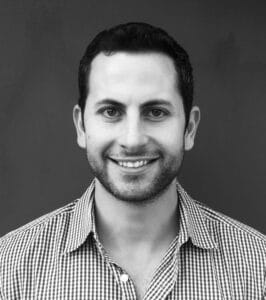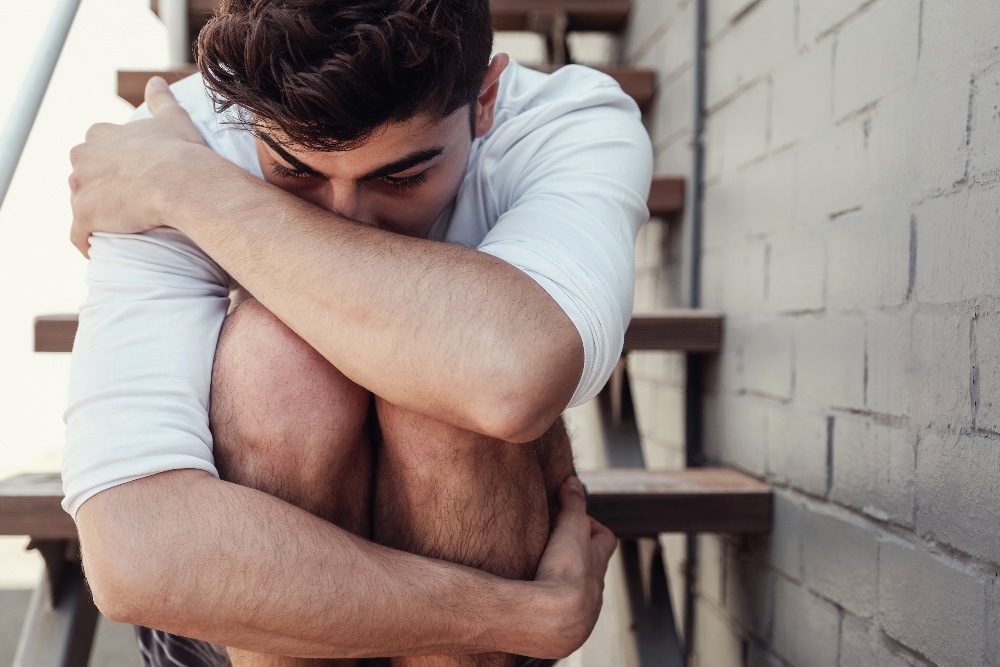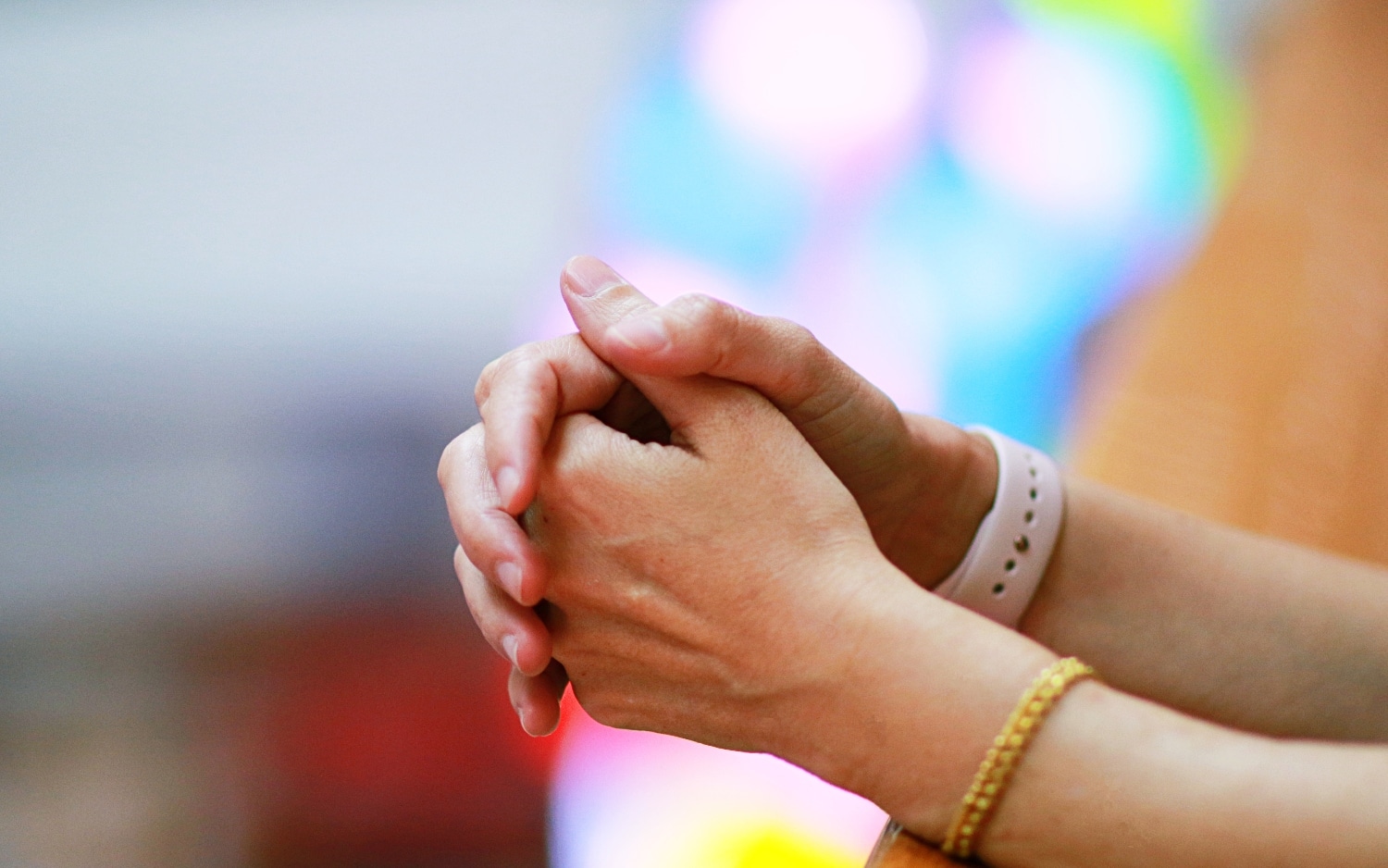Medically Reviewed by: Eric Chaghouri
Social anxiety is a pervasive mental health issue affecting millions worldwide, but it can be particularly debilitating within the LGBTQ+ community, especially among gay individuals. According to a study in the European Journal of Public Health, “social anxiety levels were notably high for all sexual minority subgroups.”
Social anxiety often involves an overwhelming fear of social situations where one might be judged or scrutinized. In this article, we explore the nuances of social anxiety specific to the gay subgroup, delve into its impacts, discuss coping strategies, and highlight the critical role of specialized LGBTQ+ drug rehab facilities in providing support.
What is Social Anxiety?
Social anxiety disorder is a condition characterized by an intense fear of being judged or negatively evaluated in social or performance situations. For individuals within the LGBTQ+ community, these fears can be magnified by concerns over rejection or discrimination based on their sexual orientation or gender identity. This might manifest as a fear of attending social gatherings, speaking in public, or even engaging in everyday interactions, which can lead to significant isolation.
The Link Between Social Anxiety and Drug Abuse
People with social anxiety often resort to using substances as a coping mechanism to temporarily reduce their discomfort and enhance social skills. Common substances include alcohol, which is socially accepted and readily available, as well as marijuana and benzodiazepines, which are used for their calming effects. While these drugs might seem to aid in social interactions by lowering inhibitions and anxiety in the short term, they do not address the underlying anxiety disorder.
Risks of Dependency
The use of substances to manage social anxiety can lead to a dangerous cycle of dependency. As the body builds tolerance, the individual may consume larger amounts of the substance to achieve the same calming effect, which can escalate to addiction. This dependency not only worsens the symptoms of anxiety over time but also introduces additional health risks, including mental health deterioration, physical health issues, and further social withdrawal and isolation.
Unique Challenges Faced by Gay Individuals
Gay individuals often face specific social challenges that can exacerbate social anxiety. These include societal stigma, fear of discrimination, and the internalization of negative stereotypes, which can lead to heightened fear of social interactions and a greater risk of social withdrawal. The stress of managing one’s identity in unsupportive environments can lead to what is known as minority stress, compounding the typical triggers of social anxiety.
LGBTQ+ Life Experiences and Social Anxiety:
Life experiences, such as past trauma, discrimination, or support systems, play a significant role in shaping the extent and nature of social anxiety in gay men and other sexual minority individuals. For example, one study states, “Gay men who are less open about their sexual orientation and those who are less comfortable with being gay were more likely to experience anxiety in social interactions.” Recognizing and addressing these life experiences through therapies like psychodynamic therapy can help uncover the root causes of social anxiety. This approach is often utilized in LGBTQ+ drug rehab facilities to provide a more comprehensive treatment plan that addresses both the symptoms and the underlying factors of social anxiety.
The Impact of Coming Out on Social Anxiety Amongst the Gay Community
Coming out is a significant milestone for many gay individuals, which can both alleviate and exacerbate social anxiety. The process of revealing one’s sexual orientation can lead to a fear of rejection or judgment from family members and peers, intensifying social anxiety. On the other hand, the support and acceptance received during this process can significantly enhance one’s well-being and reduce feelings of isolation. LGBTQ+ drug rehab facilities often provide counseling and support groups that address these specific dynamics, helping individuals navigate the complexities of coming out with less anxiety.
Impact of Social Anxiety on Daily Life
The impact of social anxiety on the lives of gay individuals can be profound. It can affect personal relationships, making it difficult to form close bonds or trust others. In professional settings, it might hinder performance or advancement due to a reluctance to engage in networking or assertiveness. Social anxiety can also exacerbate physical health issues, such as increasing the risk of heart disease, and can lead to increased substance use as individuals seek relief from their anxiety symptoms.
Coping Mechanisms and Strategies
Effective management of social anxiety involves a combination of professional treatments and personal coping strategies. Professional interventions include therapies such as Cognitive Behavioral Therapy (CBT), which helps individuals identify and challenge their negative thoughts, and Exposure Therapy, which gradually introduces individuals to feared situations in a controlled manner. Personal strategies might include mindfulness and relaxation techniques, which help manage the physiological symptoms of anxiety.
Social Anxiety During Pride Month and Navigating Pride Events
Pride Month is a vibrant and celebratory time in the LGBTQ+ community, marked by events, parades, and gatherings that aim to honor the history, struggles, and achievements of LGBTQ+ individuals. However, for those experiencing social anxiety, the very events meant to foster inclusion and celebration can present significant challenges. The large crowds, social interactions, and the pressure to participate can sometimes feel overwhelming.
The Challenges of Pride Events for Those with Social Anxiety
Pride events, often characterized by their festive atmospheres and large gatherings, can be daunting for individuals with social anxiety. The thought of being surrounded by large groups, engaging in social interactions, and the fear of being judged or not fitting in can trigger anxiety responses. For gay individuals with social anxiety, these feelings can be intensified by concerns over expressing their identity openly, especially if they are not fully out in other aspects of their lives.
Strategies for Managing Social Anxiety During Pride
- Preparation and Planning: One of the most effective ways to mitigate anxiety is to plan ahead. Familiarizing oneself with the event’s layout, schedule, and activities can help reduce the fear of the unknown. Identifying quiet spaces or escape routes in advance can also provide reassurance.
- Buddy System: Attending Pride events with a trusted friend or a group can provide a sense of security and support. Having someone to share the experience with can make the event seem less daunting and more manageable.
- Setting Realistic Expectations: It’s important for individuals to set realistic expectations about their participation. There is no requirement to stay for the entire event or participate in every activity. Recognizing one’s limits and allowing for flexibility can reduce the pressure that exacerbates anxiety.
- Engaging in Virtual Pride Activities: For those who find physical events too stressful, virtual Pride events offer a way to participate from the comfort of home. These can include live-streamed parades, webinars, and online social gatherings, providing a sense of community without the anxiety of in-person interactions.
Role of LGBTQ+ Drug Rehab Facilities
LGBTQ+ drug rehab facilities are essential for providing a safe, supportive environment where individuals can address both their mental health and substance use issues. These facilities offer specialized programs that understand the unique challenges faced by the LGBTQ+ community, including social anxiety, providing both medical treatment and emotional support in a non-judgmental setting.
Healthcare Access and Social Anxiety in LGBTQ+ Individuals
Access to healthcare that is affirming and inclusive is crucial for managing social anxiety among LGBTQ+ individuals, especially gay men and sexual minority individuals. Discrimination or insensitivity in healthcare settings can deter individuals from seeking necessary treatment for social anxiety and other mental disorders. Specialized LGBTQ+ drug rehab facilities play a critical role in providing healthcare that is not only competent but also sensitive to the unique needs of the community, thereby reducing the additional stress related to seeking help.
How Therapy Can Help
Therapy is a cornerstone of effective social anxiety treatment. It offers a safe space where individuals can explore their fears and learn coping mechanisms under the guidance of a professional. Therapy can also help individuals understand the root causes of their anxiety, often linked to early experiences or internal conflicts about their identity.
Medications and Treatments
While therapy is crucial, medications can also play a role in managing social anxiety. SSRIs (Selective Serotonin Reuptake Inhibitors) are commonly prescribed to help reduce the symptoms of anxiety by increasing serotonin levels in the brain, which can improve mood and reduce fear. Benzodiazepines might also be used temporarily to manage acute anxiety symptoms, although they carry a risk of dependency.
Lifestyle Changes and Self-Help
Lifestyle adjustments can significantly help manage social anxiety. Regular physical activity, for instance, can reduce stress and anxiety levels through the release of endorphins. Engaging in hobbies and interests can also provide a focus away from anxiety and build self-esteem. Additionally, maintaining a balanced diet can support overall brain health and reduce anxiety symptoms.
Find Hope and Healing at No Matter What Recovery in Los Angeles
While social anxiety can be challenging, understanding its nuances within the LGBTQ+ community and utilizing available resources can significantly improve quality of life. It’s important for individuals to seek support, explore treatment options, and connect with others facing similar challenges.
If you or a loved one are struggling with addiction or co-occurring mental health disorder, get in touch with No Matter What Recovery today. Our LGBTQ+ drug rehab facility in Los Angeles is dedicated to creating an environment for members of the LGBTQ+ community to heal and overcome the challenges that go along with addiction.
FAQs
Social anxiety involves intense fear of social interactions and judgment. In the LGBTQ+ community, these fears can be intensified by experiences of discrimination or the pressure of hiding one’s identity, which can exacerbate feelings of anxiety and isolation.
Coping strategies include professional therapies like CBT and exposure therapy, participation in support groups, and personal techniques such as mindfulness. Engaging in regular physical activities and maintaining a supportive social network are also crucial.
These facilities provide targeted support for individuals facing the dual challenges of managing their sexual identity and mental health issues, including social anxiety and substance use, offering a comprehensive approach to treatment within a supportive community.
Absolutely. Therapy provides tools and strategies for managing anxiety, understanding its roots, and developing healthier coping mechanisms. It is often complemented by medications and lifestyle changes for more comprehensive management.
Key lifestyle changes include engaging in regular exercise, adopting a healthy diet, participating in hobbies that build confidence, and cultivating a supportive network. These changes can help reduce overall stress and improve mental health.

Dr. Eric Chaghouri is our Medical Director at No Matter What Recovery. Since completing his forensic psychiatry fellowship, he has established a successful and thriving practice in Southern California, focusing on treatment of co-occurring psychiatric and addictive disorders.

Dr. Eric Chaghouri is our Medical Director at No Matter What Recovery. Since completing his forensic psychiatry fellowship, he has established a successful and thriving practice in Southern California, focusing on treatment of co-occurring psychiatric and addictive disorders.







